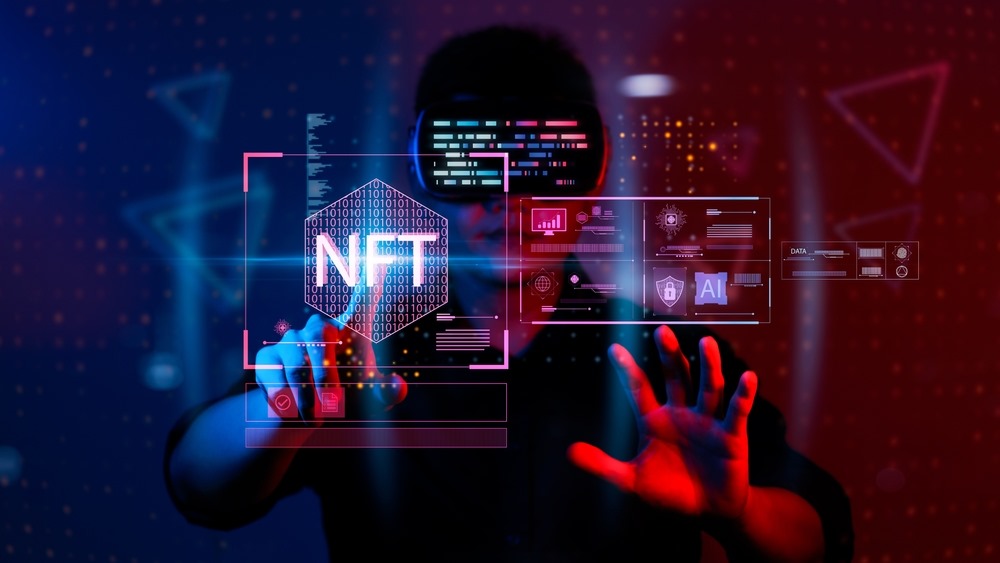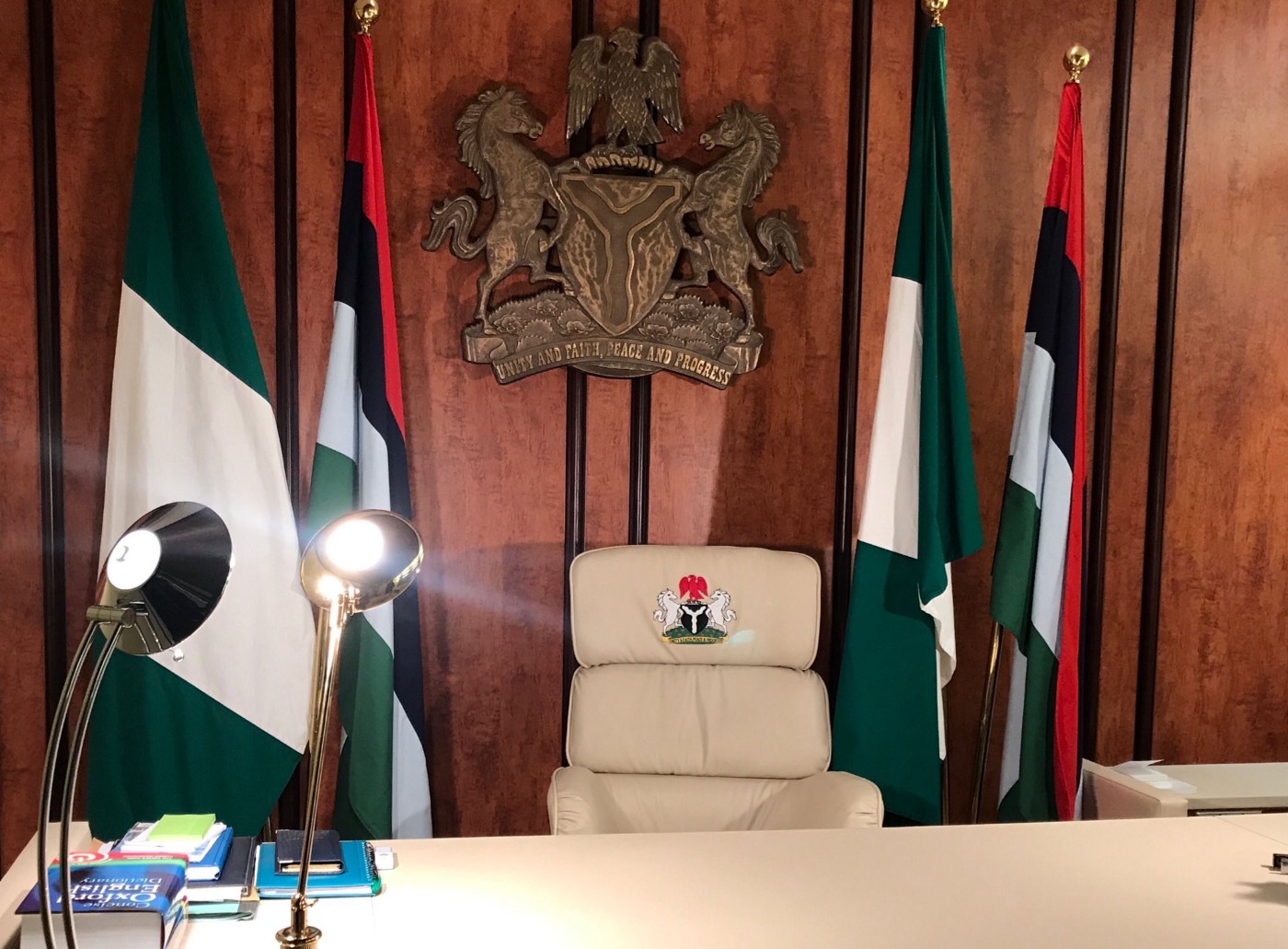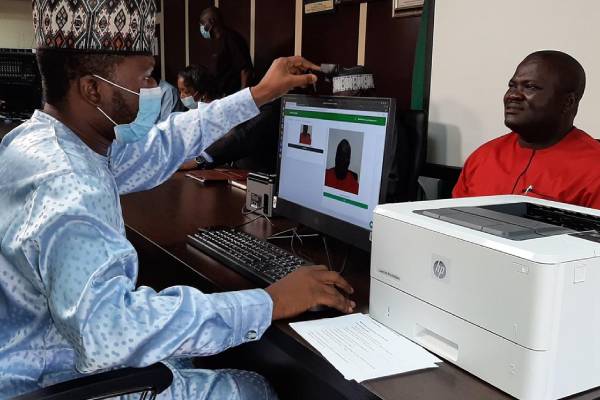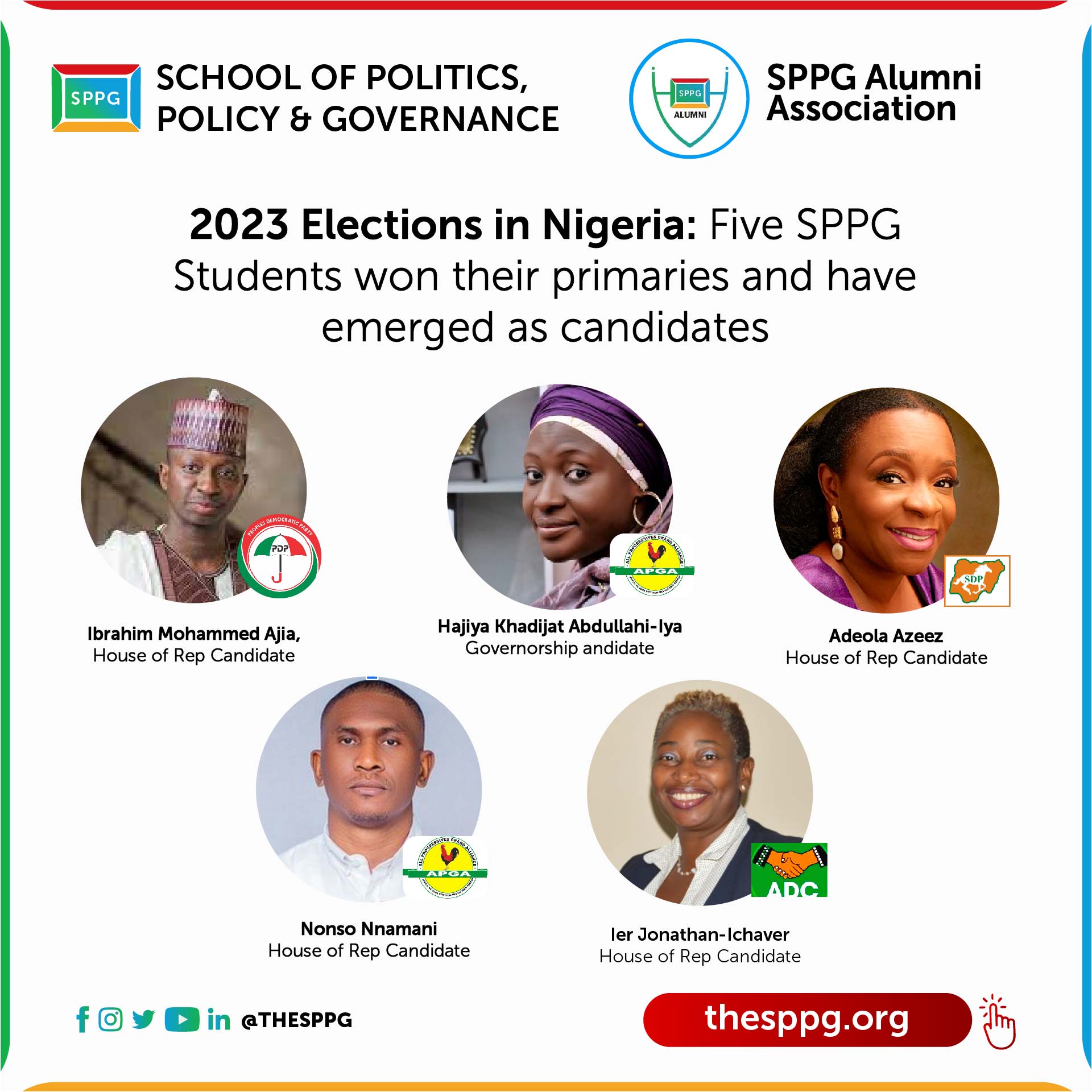The Use of Artificial Intelligence in Detecting Fake News - #BigIdeasPlatform2024isHere
The spread of fake news has become a serious issue in today's digital age and challenges the foundation of our information society. In the modern day of social media rapid communication, the spread of false or misleading information disguising it as trustworthy journalism has achieved unmatched popularity. Fake news is a powerful force that affects all facets of our lives because it is so simple to generate false narratives and spread them to a large audience. The effects of fake news are severe and widespread, whether they involve politically driven misinformation efforts, sensationalised health claims, or false financial news.
The adverse effects of fake news are many and serious. It undermines people's confidence in trustworthy information sources and makes them doubtful of mainstream media and reputable institutions. The foundation of an educated society is being undermined by this lack of trust, creating uncertainty and false information. Fake news has the ability to sway public opinion, stir up anxiety, and even have an impact on important decisions like political elections. The democratic process is seriously endangered by the use of disinformation to manipulate public opinion. Therefore, the capacity to recognize fake news is crucial. It not only helps people make informed decisions, but it also protects the integrity of our information environment.
Advancements in Artificial Intelligence (AI) have significantly simplified daily human activities. Developed by OpenAI, the Chat Generative Pretrained Transformer (ChatGPT) serves as an example of these AI technologies. ChatGPT operates as a text-based conversational agent, providing textual responses to user queries. AI algorithms have been shown to be useful in detecting fake news or misinformation that may be interfering with efficiency and optimization. Proponents of using AI in the detection of fake news suggest that certain principles need to be followed, including the development of strategies by software designers to combat fake news, enabling software users to report fake news when detected, and keeping users informed of the dissemination of fake news. For example, deep learning, machine learning, and natural language processing can extract text- or image-based cues to train models to aid in the prediction of the authenticity of news. Alternatively, AI can be used to examine the social context of the news article, including features of the poster, such as the number of shares or retweets of the post. However, Generative AI tools like ChatGPT can also facilitate the spread of misinformation or fake news to the detriment of those seeking information on virtually any topic, particularly health, finances, and politics. In extreme cases, the spread of misinformation through the use of AI-generated videos or written content can set factions against one another, with violence.
The prevalence of large language models like ChatGPT in various domains, from healthcare to information dissemination, is undeniable. While they show promise in democratizing access to information and aiding in research, ethical and accuracy-related challenges loom large. Notably, the models’ capacity for generating misleading or false information raises ethical concerns, such as in the realm of fake news generation. The consequence extends from eroding trust in AI systems to affecting user perceptions, as corroborated by empirical studies. Additionally, personal harm can befall users as misinformation about health and finances, among other things, is generated and disseminated. Data ownership, user consent, and representational bias are additional layers of complexity in this discourse. Therefore, it is crucial to address these issues comprehensively for the responsible and equitable application of these potent tools in diverse sectors.
In our battle against the trend of fake news on social media, Artificial Intelligence offers powerful tools for mitigating the spread of misinformation, but its deployment must be accompanied by careful consideration of ethical, societal, and technical implications. Understanding fake news is as convoluted as understanding human behaviour. Consequently, fighting it requires multifaceted strategies. Considering that the technology that counters fake news is the same technology that created it, neutralizing it may take more than just the expertise of top tech companies. The potential methods of detection and neutralization through AI form the basis of the discussions that we will be having at the Big Idea Platform 2024.
In 2023, The School of Politics, Policy & Governance (SPPG) partnered with the Shehu Musa Yar’Adua Foundation to launch the inaugural Big Ideas Platform, centered around "Reawakening the African Renaissance: Pathways to Inclusive Growth and Development." Five innovative African leaders shared groundbreaking ideas aimed at improving African communities' quality of life. This year, The School of Politics, Policy & Governance (SPPG) is excited to announce Big Ideas Platform 2024, in collaboration with the Shehu Musa Yar’Adua Foundation, on May 25th, 2024. This year's theme, "Information Technology and Behaviour Change," will convene intellectuals, policymakers, technocrats, and changemakers to discuss transformative ideas and solutions for Africa's inclusive prosperity and sustainable development.
The event is open to the public, and registration is free. It will be a great opportunity to learn from thought leaders and professionals about how Artificial Intelligence can be harnessed not only to combat fake news but also to improve Africa's economy and enhance its development.
Date: May 25, 2024 (Africa Day)
Time: 9:00 AM – 12 PM WAT (GMT+1)
Venue: Shehu Musa Yar'Adua Center, Abuja/ Zoom
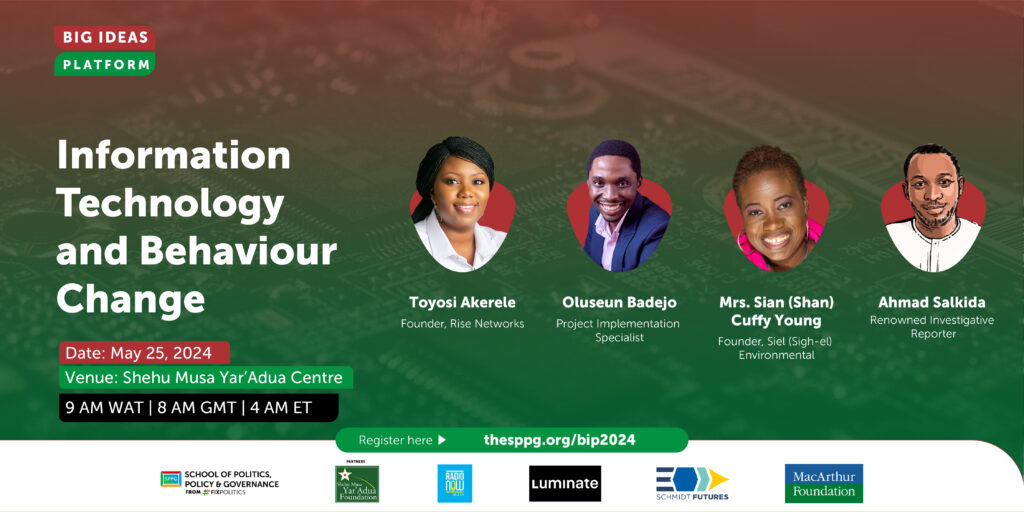
Click Here to register for #BIP2024 and stay up to date with event updates.
The Use of Virtual Reality In Addressing Challenges - #BigIdeasPlatform2024isHere
With the rapid technological advancements in recent decades, Virtual Reality (VR) has been increasingly adopted as a transformative technology with the potential to address various challenges across diverse fields. Virtual reality (VR) can be defined as an environment-building technology that enables participants to immerse themselves in their surroundings and interact with the elements. However, a broader definition of VR also includes non-immersive and semi-immersive virtual environments, such as desktop VR. This technology has gained popularity, with the market size projected to reach $62.1 billion by 2027. Previously, its use was mainly associated with entertainment and gaming, but the technology has also seen immense success in health care for training in complex procedures such as surgery, in the mining industry to simulate emergency situations, and in the automotive industry to improve driving and reduce accidents. The use of VR for training has seen immense growth because it provides an interactive learning environment that is both engaging and fun. For most people, it is something they do not use at home, so the experience is a major boon for the engagement of a workforce that would have previously experienced many different, conventional training programs.
One significant application of VR is in the fields of healthcare and education where the technology has transformed learning methods by providing immersive and interactive experiences. In the healthcare field, surgical simulators are used to enable trainee surgeons to practice procedures in a realistic virtual environment, reducing the learning curve and enhancing patient safety. VR experiences have been utilized to alleviate pain and discomfort during medical procedures, enhancing patient comfort and reducing reliance on traditional analgesics. In the field of education, VR simulators have been used to explore pivotal moments in history which enhances student engagement and retention. VR-based language learning applications also facilitate language acquisition through immersive cultural experiences and interactive exercises.
These diverse virtual training offer many advantages over traditional learning, which, even with engaging presenters, tends to rely on PowerPoint presentations that can be unappealing and reduce engagement. With a training program enhanced by VR, there is less training material required and the trainer’s time is reduced, making VR training convenient and easy to provide multiple times. Simulations in VR allow for mistakes to be made without experiencing the consequences, providing opportunities to try different ways of working and explore improvements, especially in activities that relate to emergency situations. For sequential activities, the repetition of the tasks in VR provides a safe environment to practice, increasing information retention and instilling confidence in the trainee to carry out the task in the real world. VR training is proving to be very cost-effective, as it brings the site to the trainee, eliminating the cost challenges that come with travel.
While the benefits and advantages of deploying this technology in enhancing training programs within different fields, there are certain ethical concerns that need to be addressed to fully maximise its effectiveness. The ethical concerns associated with VR technology are multi-faceted. One concern is addiction, where users may become excessively absorbed in virtual environments, which is detrimental to mental health. There is also a fear that virtual crime could escalate and become more prevalent in society, leading to confusion about what constitutes a real-world crime versus a virtual one. Another concern is the use of VR technology in various industries, such as military and defence, healthcare, and entertainment. The ethical implications of using VR in these industries are varied, ranging from the potential for creating more realistic and practical training scenarios to the possibility of exploiting vulnerable populations or exposing sensitive information. Additionally, there are privacy concerns surrounding VR technology. As users enter virtual environments, data is collected and stored on their actions, preferences, and behaviours. This personal data may be used to manipulate users and influence their actions, as seen in targeted advertising.
Despite these concerns, the future of VR appears promising, with ongoing advancements in hardware, software, and content development. These opportunities form the basis of the discussions that we will be having at the Big Idea Platform 2024.
In 2023, The School of Politics, Policy & Governance (SPPG) partnered with the Shehu Musa Yar’Adua Foundation to launch the inaugural Big Ideas Platform, centered around "Reawakening the African Renaissance: Pathways to Inclusive Growth and Development." Five innovative African leaders shared groundbreaking ideas aimed at improving African communities' quality of life. This year , The School of Politics, Policy & Governance (SPPG) is excited to announce Big Ideas Platform 2024, in collaboration with the Shehu Musa Yar’Adua Foundation, on May 25th, 2024. This year's theme, "Information Technology and Behaviour Change," will convene intellectuals, policymakers, technocrats, and changemakers to discuss transformative ideas and solutions for Africa's inclusive prosperity and sustainable development.
The event is open to the public, and registration is free. It will be a great opportunity to learn from thought leaders and professionals about how Virtual Reality can be harnessed not only to across diverse industries but also to improve Africa's economy and enhance its development.
Date: May 25, 2024 (Africa Day)
Time: 9:00 AM – 12 PM WAT (GMT+1)
Venue: Shehu Musa Yar'Adua Center, Abuja/ Zoom
Click Here to register for #BIP2024 and stay up to date with event updates.
Join us, let's co-create the Africa we need.
Unveiling the Impact of Blockchain Technology on the Educational System: #BigIdeasPlatform2024IsHere
Blockchain is a revolutionary technology that has the potential to revolutionise various industries, including finance, supply chain management, healthcare, and education. Its decentralised, secure, and transparent nature makes it ideal for use in industries where trust, security, and efficiency are of paramount importance. The integration of blockchain technology into the education system has the potential to greatly improve the efficiency, security, and credibility of the educational process. By creating secure and transparent platforms for tracking and verifying students’ academic achievements, blockchain technology can help to create a more accessible and trustworthy education system, making it easier for students to showcase their skills and knowledge to potential employers.
One of the primary benefits of blockchain in education is the creation of a tamper-proof and secure digital transcript. This transcript can store a student’s academic history, including grades, certifications, and other achievements, in a decentralised and secure manner. This can eliminate the need for traditional paper-based transcripts, which can be easily lost, damaged, or tampered with. Another potential benefit of blockchain in education is the creation of a centralised platform for the issuance and verification of digital credentials. This can greatly simplify the process of obtaining and verifying academic credentials, as it eliminates the need for intermediaries to validate them. Additionally, the secure and transparent nature of blockchain can help to prevent fraud, as it provides a reliable and tamper-proof record of a student’s achievements.
Another area where blockchain can have a significant impact is in the area of online education. By incorporating blockchain technology into online learning platforms, educators can create secure and trustworthy systems for delivering and tracking online courses and certifications. This can help to improve the credibility and recognition of online education, making it a more attractive option for students and employers alike. Starting with the general idea, blockchain is a revolutionary technology with the potential to revolutionise various industries, including education. By creating secure and transparent platforms for tracking and verifying students’ academic achievements, blockchain technology can help to create a more accessible and trustworthy education system, making it easier for students to showcase their skills and knowledge to potential employers.
One of the primary challenges hindering the widespread adoption of blockchain in education is the perceived technological complexity. Implementing blockchain-based solutions requires expertise in distributed systems, cryptography, and smart contract development, which may be beyond the capabilities of many educational institutions. Additionally, the regulatory and legal landscape surrounding blockchain technology is still evolving, posing uncertainties and compliance challenges for educational stakeholders. Concerns related to data privacy, intellectual property rights, and jurisdictional issues need to be addressed to ensure the lawful and ethical use of blockchain in education.
Despite these challenges, the integration of blockchain technology holds immense promise for transforming the educational system into a more transparent, secure, and efficient ecosystem. The potential of incorporating this technology into the educational sector in Africa forms the basis of the discussions that we will be having at the Big Idea Platform 2024.
In 2023, The School of Politics, Policy & Governance (SPPG) partnered with the Shehu Musa Yar’Adua Foundation to launch the inaugural Big Ideas Platform, centred around "Reawakening the African Renaissance: Pathways to Inclusive Growth and Development." Five innovative African leaders shared groundbreaking ideas aimed at improving African communities' quality of life. This year , The School of Politics, Policy & Governance (SPPG) is excited to announce Big Ideas Platform 2024, in collaboration with the Shehu Musa Yar’Adua Foundation, on May 25th, 2024. This year's theme, "Information Technology and Behaviour Change," will convene intellectuals, policymakers, technocrats, and changemakers to discuss transformative ideas and solutions for Africa's inclusive prosperity and sustainable development.
The event is open to the public, and registration is free. It will be a great opportunity to learn from thought leaders and professionals about the Use of Blockchain Technology In The Educational System.
Date: May 25, 2024 (Africa Day)
Time: 9:00 AM – 12 PM WAT (GMT+1)
Venue: Shehu Musa Yar'Adua Center, Abuja/ Zoom
Click Here to register for #BIP2024 and stay up to date with event updates.
The Use of Learning tools to Build awareness of Waste Management: #BigIdeasPlatform2024isHere
Solid Waste Management is a multifaceted problem comprising political, socioeconomic, institutional, and environmental aspects. Due to exponential urban growth, it has become one of the most significant issues faced by urban spaces in developing countries. The gap in environmental knowledge among the youth and the old within developing countries contributes to ecological issues or waste management problems, resulting in unsustainable development, with important consequences in low-income countries. Most of the low/middle-income countries are unable to provide effective waste management collection services because of resource constraints, lack of facilities including vehicles, and infrastructure, improper route planning, lack of technical know-how, and inadequate environmental education and awareness. To sustain SW or environmental issues in developing countries, formal education for sustainable development is essential at all levels of education, able to trigger a whole societal transformation. For better environmental sustainability or waste management sustainability education, teachers with the right knowledge, attitude, skills, and innovation, are required.
Awareness plays a pivotal role in shaping individual behaviours and attitudes towards waste management. Lack of awareness often leads to improper disposal practices such as littering, illegal dumping, and indiscriminate waste disposal, exacerbating environmental degradation and pollution. Educating the public about the environmental consequences of improper waste disposal and the benefits of adopting sustainable practices is crucial for fostering responsible behaviour and promoting a culture of waste reduction and recycling. Learning tools, including educational programs, digital applications, and interactive platforms, offer effective means of disseminating information and engaging individuals in waste management initiatives. Educational programs conducted in schools, communities, and workplaces provide structured learning experiences that raise awareness and promote sustainable waste practices among participants. Digital applications and online platforms offer interactive tools and resources, allowing users to access information, track their waste footprint, and participate in recycling programs conveniently.
The search for improved environmental quality has driven several governments in developing nations to adopt the use of Environmental Education in improving the attitude and behaviour of its citizenry towards waste management. One could ask what is the behaviour of undergraduate students towards waste management in Nigeria. Waste management behaviours are all attitude, disposition and perception towards properly disposing of waste in any environment one finds himself. Waste management behaviour includes open dumping, careless attitude towards properly disposing of institutional waste like food wrappers, torn books or papers, hotel food remains, vegetable remains etc. A degraded environment can only offer a degraded quality of life. If we really desire to sustain and improve upon the present quality of life, then it is the collective responsibility of every living human being to secure the quality of the environment.
It has been repeatedly emphasized that there is an irrepressible need for entrenching Environmental Education as a leading approach to solving environmental problems and creating a sustainable society. The poor as well as the affluent are equally vulnerable to environmental damage. The poor and poverty-stricken people, wherever they may live, are generally preoccupied with the issue of physical survival. They lack money, skills and knowledge and therefore oftentimes, tend to over-utilise local resources beyond sustainable levels. They, therefore, need to be empowered to be able to control their resources and therefore their lives according to the tenets of a sustainable, safe and clean environment for healthy living in society.
The implementation of these learning tools to facilitate Environmental Education faces several challenges, including limited access to technology and cultural differences. Additionally, sustaining public interest and engagement in long-term waste management initiatives requires continuous efforts and resources. These implementation methods and challenges form the basis of the discussions that we will be having at the Big Idea Platform 2024.
In 2023, The School of Politics, Policy & Governance (SPPG) partnered with the Shehu Musa Yar’Adua Foundation to launch the inaugural Big Ideas Platform, centered around "Reawakening the African Renaissance: Pathways to Inclusive Growth and Development." Five innovative African leaders shared groundbreaking ideas aimed at improving African communities' quality of life. This year , The School of Politics, Policy & Governance (SPPG) is pleased to announce Big Ideas Platform 2024, in collaboration with the Shehu Musa Yar’Adua Foundation, on May 25th, 2024. This year's theme, "Information Technology and Behaviour Change," will convene intellectuals, policymakers, technocrats, and changemakers to discuss transformative ideas and solutions for Africa's inclusive prosperity and sustainable development.
The event is open to the public, and registration is free. It will be a great opportunity to learn from thought leaders and professionals about how we can Use of Learning tools to Build awareness of Waste Management.
Date: May 25, 2024 (Africa Day)
Time: 9:00 AM – 12 PM WAT (GMT+1)
Venue: Shehu Musa Yar'Adua Center, Abuja/ Zoom

Click Here to register for #BIP2024 and stay up to date with event updates.
About the Big Ideas Platform: The Big Ideas Platform is a thought leadership initiative developed by the School of Politics, Policy, and Governance. With a focus on empowering African innovators and amplifying their voices, this platform aims to promote dialogue, collaboration, and action to address the pressing challenges faced by African communities. By highlighting transformative ideas, the Big Ideas Platform strives to facilitate inclusive growth, development, and the realization of the African Renaissance.
Fuel Subsidy and the Real Economy - Precious Chimdimma Ebere Class of 2022
Opinion piece by Precious Chimdimma Ebere Class of 2022
As one who read Social and Public Policy at my Master's level and has been privy to contributing to developing policies at both local and international levels, I have seen the implications of how a badly executed policy has tremendously affected the polity of the economy.
Having carried out a previous study on the implications of fuel subsidy on the economy, social welfare, and overall development of Nigeria, to share my findings let us first delve deep into understanding what Fuel Subsidy is. Fuel subsidy refers to the government's practice of artificially lowering the price of petroleum products, particularly gasoline, through financial interventions. While it may seem like a beneficial policy, especially for consumers who enjoy lower fuel prices, the long-term consequences of fuel subsidy can be detrimental to the country's progress.
As a public policy expert who understands both lenses (mass agitation vs government policy), it is imperative that the government maintain a balance when implementing changes or removing policies. When a particular policy, such as fuel subsidy, is removed, it is crucial to have measures in place to mitigate any potential negative consequences and ensure a smooth transition. The goal is to avoid disruptions that could lead to social unrest or economic instability, thereby safeguarding national peace.
The practice of artificially lowering the price of petroleum products through financial interventions has been a longstanding policy in Nigeria. While it may initially appear beneficial by providing affordable fuel to consumers, the long-term consequences of fuel subsidy pose significant dangers to the country's development and growth. This article will explore the implications of fuel subsidy on Nigeria's economy, social welfare, and overall progress. It highlights the drain on the national budget, fostering inefficiency in the energy sector, contributing to corruption, and hindering market dynamics and innovation. It also emphasizes the need for a balanced approach in policy implementation and offers insights into the UK's experience with policy transitions.
The Drain on the National Budget:
One of the major dangers of fuel subsidies is their significant drain on the national budget. For example, let’s say, the intention of the government to subsidize petrol was simply to make the product affordable for Nigerians and make life easier. So, the average price of petrol in the world can be as high as N590, however, the Nigerian Government will subsidize the product and fix the price at N185 bringing the total amount of subsidy per liter to N405.
According to data released by NNPC in 2022, the average consumption of liters of petrol in Nigeria per day is 60 million liters. Even though The controversy surrounding the actual daily petrol consumption in Nigeria has been unending with the different agencies in charge of the importation and distribution of Premium Motor Spirits reeling out conflicting figures. The daily petrol consumption in Nigeria remains a mystery. However, If the average consumption of petrol in Nigeria per day is indeed 60 million liters, it would indicate a significant demand for petrol in the country. Nigeria is one of the largest oil-producing countries in Africa, and petroleum products, including petrol, play a crucial role in the country's energy and transportation sectors.
However, Marketers of the product load as much as 100 million liters and above per day.
This means the Nigerian Government is expected to pay as much as N405 × 100,000,000 (liters) as subsidy per day to the Marketers of the product to keep prices at N185 for instance. This brings the amounts to N40.5 billion daily and about N1.2 trillion monthly. Kindly take note that this amount can either decrease or increase following the prices of petrol at the international market.
So, just try to wrap your head around it and know what Nigeria expends on fuel subsidy alone in a year - obviously some billions of dollars.
From the government's end; subsidizing fuel requires a substantial amount of public funds that could otherwise be allocated to critical sectors such as education, healthcare, infrastructure, and social welfare programs. This limits the government's ability to invest in these areas, hindering overall development and growth. One may beg to ask, how judiciously have people in authority utilized the national budget to advance the economy?
To determine the actual daily petrol consumption; the NNPC, which is currently responsible for importing 100 percent of petrol into the country, needs to submit its accounts for forensic auditing as advised by experts.
Fostering Inefficiency in the Energy Sector:
Analyzing from the lens of the Energy Sector, Fuel subsidy fosters inefficiency in the sector by discouraging private investment. When the government artificially lowers fuel prices, it reduces the incentive for private sector participation in the petroleum industry. This lack of investment hampers the development of domestic refining capabilities, leading to heavy reliance on imported petroleum products. Consequently, Nigeria becomes dependent on foreign sources for its energy needs, negatively impacting national sovereignty and economic stability.
Contribution to Corruption and Rent-Seeking Behaviors:
Looking at the various caveats explored above, it is evident that fuel subsidy also contributes to widespread corruption and rent-seeking behaviors. The opaque nature of subsidy disbursement and the large sums of money involved create opportunities for corrupt practices. Some individuals exploit the system to divert funds meant for fuel subsidy, leading to a significant loss of public resources. These corrupt practices perpetuate inequality and hinder socioeconomic development.
Distortion of Market Dynamics and Inhibition of Innovation:
Market analysts and Climate change activists will argue that fuel subsidy distorts market dynamics and discourages innovation in the energy sector. When prices are artificially low, there is little incentive for consumers to adopt energy-efficient technologies or explore alternative sources of energy. This inhibits the transition to cleaner and more sustainable energy solutions, which are crucial for addressing climate change and reducing environmental pollution.
In contrast, if fuel subsidies are phased out or removed, it creates a more level playing field for different energy sources. The true cost of fossil fuels, including their environmental and social impacts, is reflected in the market price. This can incentivize consumers and businesses to seek out cleaner energy options and invest in innovative technologies that reduce dependence on fossil fuels.
For instance, higher fuel prices can stimulate demand for electric vehicles (EVs) and encourage the development of charging infrastructure. With the removal of fuel subsidies, consumers may be more motivated to consider EVs as a viable alternative, leading to increased adoption and market growth. This, in turn, spurs innovation in the EV industry, with companies investing in research and development to improve battery technology, extend driving range, and reduce costs in a more sustainable way. This indeed could usher us into the future of energy sustainability.
A Balanced Approach to Policy Implementation:
Having analyzed the pros and cons of fuel subsidy, in the realm of public policy, it is imperative to maintain a balance when implementing changes or removing policies. When a particular policy, such as fuel subsidy, is removed, it is crucial to have measures in place to mitigate any potential negative consequences and ensure a smooth transition. The goal is to avoid disruptions that could lead to social unrest or economic instability, thereby safeguarding national peace.
To articulate this concept better, let's consider the example of strategically removing fuel subsidy. Instead of abruptly ending the subsidy, a comprehensive approach should be adopted. This approach involves researching and implementing alternative policies and measures that cater to a balance between the needs of the people and the larger economic objectives.
For instance, when removing fuel subsidy, the government can introduce targeted social safety net programs to protect vulnerable populations from sudden price shocks. These programs can provide direct cash transfers, subsidies on essential goods and services especially on transportation, or support for income-generating activities. By implementing such measures, the government ensures that the removal of the subsidy does not disproportionately burden those already facing economic hardships, thereby maintaining social cohesion.
While safety net programs require government expenditure, their impact on the national budget can be managed through careful budgetary planning and fiscal discipline. Governments can implement measures such as means-testing, periodic reassessments, and cost controls to ensure that the programs are effectively reaching the intended beneficiaries while minimizing waste and preventing excessive strain on public finances. Also, these safety net programs can provide an economic multiplier effect. By providing support to vulnerable individuals or households, these programs can help maintain a certain level of consumer spending, which, in turn, can stimulate demand and contribute to economic activity. This can have indirect benefits for businesses and employment, leading to overall economic stability and growth.
Additionally, when removing a policy like fuel subsidy, the government should simultaneously work towards creating an enabling environment for private sector participation and investment. This can be achieved by implementing supportive policies, such as improving the ease of doing business, providing incentives for domestic refining and alternative energy sources, and promoting competition in the energy sector. These measures stimulate economic growth, foster innovation, and create employment opportunities, thereby mitigating any potential negative impacts on the economy.
Furthermore, effective communication and transparency are vital during policy transitions. The government should engage with stakeholders, including civil society organizations, experts, and affected communities, to ensure their concerns are heard and addressed. Transparent reporting on the utilization of public funds and regular audits can help build trust and hold those in authority accountable for their actions, reducing the likelihood of corruption and mismanagement.
Lessons from the UK's Experience with Policy Transitions: Universal Credit
While doing a case study on Universal Credit a welfare benefit system introduced in the United Kingdom, designed to simplify the process of receiving various social security benefits into a single monthly payment. It replaces six existing benefits, including housing benefits and income support, and aims to provide a more streamlined and responsive support system for individuals and families. I picked up a few strategic lessons. The UK government's implementation of Universal Credit provides valuable lessons on policy transitions and the importance of considering social and economic balance. Comprehensive planning, gradual implementation, and mitigating potential negative impacts were key aspects of the Universal Credit reform. The government actively engaged with stakeholders supported employment opportunities, and implemented monitoring and evaluation processes to ensure the policy's success. Even though there were a few lapses in the proper execution, it was commendable by the larger populace. Incorporating these lessons into policy-making processes can enhance the likelihood of achieving desired objectives while maintaining social and economic balance.
Recommendation for the Nigeria Government
In order to ensure a comprehensive and balanced approach to the fuel subsidy removal policy and its impact on the Nigerian population, the government should consider the following recommendations:
- Conduct a thorough and inclusive analysis: The government should undertake a comprehensive analysis of the fuel subsidy removal policy, taking into account the perspectives and concerns of various stakeholders, including citizens, businesses, and experts. This analysis should assess the short-term and long-term effects of the policy on the livelihoods of Nigerians and the overall economy.
- Consider the welfare of the average Nigerian: When determining fuel prices, the government should consider the minimum wage and the standard of living of the average Nigerian. This will help ensure that the cost of fuel remains affordable and does not disproportionately burden the most vulnerable segments of society.
- Implement measures to mitigate the adverse effects: Recognizing that the removal of fuel subsidies may have negative consequences, especially for low-income individuals and households, the government should implement targeted measures to mitigate these effects. This could include implementing social safety nets, such as direct cash transfers or subsidies for essential goods and services, to cushion the impact on vulnerable populations.
- Explore alternative solutions: Instead of relying solely on fuel subsidy removal, the government should explore alternative solutions to address the challenges in the energy sector. This could involve promoting renewable energy sources, improving energy efficiency, and diversifying the energy mix. By investing in sustainable and clean energy solutions, the government can reduce dependence on fossil fuels and create a more resilient and environmentally friendly energy system.
- Prioritize citizen welfare: Above all, the government should prioritize the welfare and well-being of the Nigerian people. This means actively listening to their concerns, engaging in open dialogue, and incorporating their feedback into policy decisions. By adopting a citizen-centric approach, the government can ensure that its actions align with the needs and aspirations of the Nigerian population.
In conclusion, the politics behind fuel subsidy in Nigeria, while often perceived as a means of providing short-term relief to citizens, pose significant dangers to the country's development and growth. When removing a policy, measures should be put in place to mitigate potential negative consequences and maintain social harmony. To achieve sustainable development and foster economic growth, a balanced approach to policy implementation is essential, including targeted social safety net programs, fostering private sector participation, promoting transparency, and engaging with stakeholders. Certainly, accountability and judicious utilization of the national budget by people in authority play a crucial role in advancing the economy and ensuring overall development. While it is true that some individuals in positions of power have misused public funds, it is essential to recognize that effective public policies and good governance can address these challenges and foster positive outcomes. By adopting such a comprehensive approach, policymakers can navigate policy transitions effectively, avoiding distortions of national peace and fostering sustainable development.

Precious Chimdimma Ebere Class of 2022
Social media Handles
Facebook: https://www.facebook.com/preciouseberegem
Twitter: https://twitter.com/preciousebere
Instagram: https://www.instagram.com/preciousebere_gem/
LinkedIn: https://www.linkedin.com/in/precious-ebere-4452b2132
The Political Economy Of The “Sixteenth” Presidency: A Comparative Approach
by Omoaholo Omoakhalen
Interrogating the “Sixteenth”
On Monday, May 29, 2023, the presidency of Muhammadu Buhari came to an end and Bola Ahmed Tinubu was sworn in as the President of the Federal Republic of Nigeria. Political commentators and media channels have repeatedly described President Bola Ahmed Tinubu as “Nigeria’s 16th President.” Following the February 25 elections, the president had, in his acceptance speech as president-elect, thanked Nigerians for electing him to serve as “the 16th president…”[1] However, this description is rather subjective and debatable owing to a couple of historical facts. In its “Chronologies of Past Presidents and Heads of States,”[2] the Office of the Secretary to the Government of the Federation (OSGF) in the Buhari administration listed Chief Benjamin Nnamdi Azikiwe as Nigeria’s second leader. Azikiwe, a founding father of Nigeria, had been Nigeria’s president, albeit ceremonially, between October 1, 1960 and January 16, 1966. Nevertheless, being a ceremonial president, Chief Azikiwe lacked executive powers since such powers were vested in the then Prime Minister, Tafawa Balewa, who is listed as Nigeria’s first leader in the OSGF records. On this official list, with the inclusion of Dr. Nnamdi Aikiwe, the immediate past president, Muhammadu Buhari, is listed as Nigeria’s 16th leader.
Furthermore, on October 17, 1993, a Lagos High Court declared the Interim National Government of Chief Ernest Shonekan illegal because, according to the presiding judge, late Justice Dolapo Akinsanya, former military president, Ibrahim Babangida had “no legitimate power to sign a decree after August 26, 1993, after his exit,” hence, the decree by which he instituted the interim government after his famous stepping aside was “void and of no effect.”[3] This, therefore, casts a legal shadow on the listing of Chief Shonekan as one of Nigeria’s past leaders and, as such, further raises a question as to who actually was, or is, or will be, Nigeria’s 16th leader. Given these factors and variables, the Tinubu presidency would have to edit the current narrative of history by deleting from the list of past Heads of State either Nigeria’s first Prime Minister, Tafawa Balewa (because he was head of a parliamentary government) or Nigeria’s first and only ceremonial president, Nnamdi Azikiwe (because he lacked executive powers and was Balewa’s contemporary in government), or the former Head of the Interim National Government, Chief Ernest Shonekan (because his tenure was nullified by the court) , for President Tinubu to be conveniently listed as Nigeria’s 16th leader. Delisting two or all three of these would make Tinubu Nigeria’s 15th or 14th leader as the case may be.
Moreover, the notion of Bola Tinubu as “Nigeria’s 16th President” is, at best, romanticised because most of Nigeria’s past leaders were not officially recognised as “President.” With the exception of Ibrahim Babangida who chose to be addressed as such reportedly with a view to portray a more humane face than his predecessor, Nigeria’s past military leaders were mostly addressed officially as “Head of State and Commander-in-Chief of the Armed Forces” or by such titles as “Chairman of the Supreme Military Council.” Nigeria had no executive president until the Second Republic, between 1979 and 1983, when the presidential system of government was adopted and Alhaji Shehu Shagari became Nigeria’s first executive president. Therefore, the culture of celebrated enumeration of presidents is largely new to the Nigerian political space as hardly were former presidents, Olusegun Obasanjo, Umaru Musa Yar’Adua, Goodluck Ebele Jonathan and Muhammadu Buhari projected or celebrated by the media or political commentators as the 12th, 13th, 14th or 15th presidents respectively. Why then has the notion of Nigeria’s “16th President” become so emphasised with the emergence of President Bola Tinubu? Although this new development has a local political underbelly, the focus of this article is not the immediate politics of Nigeria’s “sixteenth presidency” but on the international comparative politics of it. With parallels from the United States of America, this article dissects the rising interplay of power between business, politics and institutions in the Nigerian context and in this period of the nation’s history.
The American Model
The remote cause of the romanticising of the 16th presidency in the Tinubu era may not be unconnected to the legendary status of Abraham Lincoln, America’s 16th president, who is rated the greatest president in America’s history by most scholar surveys, from the C-SPAN Survey of Presidential Leadership[4] to the survey by the American Political Science Association (APSA).[5] Regarded as the last strong American president of the 19th century, Lincoln inherited a nation divided along North and South by the contentious question of slavery. His election in 1860 proved further divisive as he won less than 40% of the popular votes cast while his opponents together recorded almost a million more votes than he did, though he won the Electoral College votes. Incensed by his emergence due to his known stance against slavery, the Southern States, led by South Carolina and followed by six more states, seceded from the Union, leading to the American Civil War. In response, Abraham Lincoln assumed an expanded interpretation of the role of the presidency through the presidential “war powers” doctrine[6] by which he pushed the boundaries of his powers as president by reason of necessity, overriding Congress, the Supreme Court, and the civil liberties guaranteed by the Constitution, an interpretation which, though contested by Congress and the judiciary, enabled Lincoln to win the war and safeguard the Union. In addition, he moved his country closer to institutional inclusiveness through the Emancipation Proclamation followed by the 13th Amendment to the Constitution, thus abolishing slavery. His assassination on April 15th, 1865, two weeks after winning the war, sealed his ascendance to the realm of legend as America’s greatest president.
Lincoln was succeeded by a retinue of relatively weak presidents, from Andrew Johnson to Grover Cleveland, under whose tenures power shifted from the political class to the industrial class with business leading the nation’s advance. This era saw the likes of Cornelius Vanderbilt, the rail “Commodore” who became America’s richest man till he died in 1877; Andrew Carnegie, the steel giant who, after the sale of Carnegie Steel Company, became the richest American; John D. Rockefeller, the oil magnate who is considered the richest American ever; and J.P. Morgan, the financial colossus, who was famous for bailing out the United States and who, as a private citizen with many gold reserves, forced President Glover Cleveland into a deal that saved the United States Treasury from default during the Panic of 1893.
The cutthroat competition among these industrialists, including hostile takeover moves, though brutal and ruthless, positioned America to maximise the First Industrial Revolution, enabled rapid industrialisation and facilitated infrastructural development, thereby spurring economic growth, with an estimated GDP rise from between $125 and $135 per Capita in 1860[7] to about $4,091 per Capita in 1900.[8] As an attestation to the power of business in the polity, the United States Supreme Court ascribed to the corporation in Santa Clara County v. Southern Pacific Railroad (1886) the legal rights conferred on a person by the Fourth Amendment. Furthermore, the industrialists became so powerful that, in the 1896 elections, they coalesced to put in power a business-friendly Republican candidate, William McKinley, the 25th president of the United States, ensuring that he beat the populist Democrat, William Jennings Brian, whose policy stance posed a threat to big business.
Four years later, in the 1900 election, in order to curtail the ambitious political rise of Theodore Roosevelt, the political class, in collaboration with big business, convinced McKinley to adopt Roosevelt as running mate, concluding that the vice presidency was a political cul-de-sac that would end Roosevelt’s political career. However, McKinley’s assassination in 1901 promoted Roosevelt to the presidency, thus ushering in a strong president who proceeded to burst the monopolies of big business through aggressive anti-thrust laws. This trajectory - from strong politics to big business back to strong politics - paved the way for America’s leadership in the Second Industrial Revolution especially through the disruption spearheaded by Henry Ford, the automobile industry leader, whose innovations facilitated the democratisation of access to an otherwise exclusive good. This intersection of political and economic forces also cumulatively ushered America into global political power as the country emerged from its isolationist Monroe Doctrine to become a game-changer in the First and Second World Wars under the leadership of two strong presidents, Woodrow Wilson and Franklin Roosevelt respectively. By the end of the Second World War, America emerged as a 20th-century world power.
The Nigerian Parallel
Politically, Nigeria has been divided along Northern and Southern interests and tendencies since independence and even prior. Strongly connected to regional division is the religious component which roughly finds expression along North-South delineations. These two divisive expressions have often been interwoven with the partisan divide, with this intersection of divisions imposed on the Nigerian map at every presidential election since 2011. The 2011 election result map divided Nigeria into two main portions with Muhammadu Buhari’s party, the Congress for Progressive Change (CPC), winning the majority of the Northern States while the People’s Democratic Party (PDP) won most of the states in the South.[9] In 2015, Buhari’s new party, the All Progressives Congress (APC) won most of the Northern States while the PDP won the South. In 2019, the APC won most of the North as well as the South-West while the PDP won the South-East and the South-South.
While the 2023 election results show a more variegated map reflecting the emergence of a third force (the Labour Party), the result of the election as announced by the Independent National Electoral Commission (INEC) is being challenged and is set to follow the tradition of 6 out of 10 of Nigeria’s previous elections since 1979 which were decided in the courts. While it would be subjudice to discuss the facts of the case, the fact remains that the judicial contestation of the election of a president who has already been sworn in could potentially weaken the presidency. This is compounded by doubts on the veracity of the election results among segments of the electorate and by local and international observers as well as the fact that the declared winner scored less than 40% of total votes cast, as did Abraham Lincoln in 1860. These factors could cumulatively pose a legitimacy challenge to a sitting president. Conversely, these factors could also compel the president to assume enormous extra-presidential powers including tampering with the democratic doctrine of separation of powers or judicial independence to safeguard his contested mandate and see through his program agenda. These are some of the political factors and variables shaping Nigeria’s “sixteenth” presidency, remotely mirroring those of the United States in the 19th century.
On the economic side, the administration of President Muhammadu Buhari was characterized by a strong government presence in the economy with such policies as border closure, infrastructure financing by means of government debt, exchange rate controls, subsidized consumption, price fixing and regulation, and selection of champions through targeted policies such as selective access to foreign exchange as well as minimization of competition in key sectors such as fertilizer and energy. These were some of the imprimaturs of a command economy that defined the Buhari administration. Following this restrictive era, a new era of business-led growth seems to be on the horizon even as the leading contenders in the 2023 elections espoused pro-business agendas albeit in varying ratios of public-private investment leanings. This pro-business posture was reiterated in President Tinubu’s inauguration speech with the new president describing some of his predecessor’s policies as “anti-investment inhibitions.”
This pro-business era is emerging alongside the rising power of corporate industrial giants, the likes of Aliko Dangote of Dangote Group, Abdul Samad Rabiu of Bua Group, Femi Otedola of Forte Oil, Tony Elumelu of Transcorp, among others. A similitude of the American post-Lincoln industrialist wars has also been observed among these corporate giants, between Dangote and Rabiu with regard to cement production licensing as well as sugar pricing, and, more recently, between Otedola and Elumelu around the shares of Transcorp in what could have resulted in a hostile takeover.
Nevertheless, compared to the American case which saw industry leaders wield enormous influence on the state in relation to the political class in the later half of the 19th century, the extent to which a competitive industrial class can influence the policy or political space is limited due to, among other factors, the capture of the state by opaque political interests. Unlike Nigeria’s business leaders whose wealth valuations are available to the public, Nigeria’s ruling political elite control undeclared assets which are largely beyond public scrutiny due to constitutional provisions that do not mandate public declaration of assets. Due to access to such inscrutable wealth, Nigeria’s political class is largely independent of the business or industrial class for political survival, thus limiting the extent to which business can disrupt politics. As a matter of fact, in Nigeria, business relies on the government to survive, and not the other way around.
Opportunities for Accelerated Growth and Development
Nevertheless, Nigeria can evolve a growth and development-oriented political economy by opening up for competition hitherto closed or selectively open sectors such as petroleum refinery, cement production, agricultural input production, and the entire electricity value chain, from generation to transmission to distribution. Furthermore, policy and legislative measures must be targeted at creating adjacencies and linkages between big businesses and Small and Medium Enterprises (SMEs), thus cascading business-led growth. Such economic remodeling must be orchestrated on a foundation of emancipatory constitutional reforms that would empower subnationals and remove inhibitions to private property and investments such as the Land Use Act.
Unlike 19th to 20th century America, Nigeria does not need decades to maximize her industrial potential nor does she necessarily need to go through the phases from big government to big business back to big government and then to disruptive business to emerge as a political-economic power. This is due to the exponential and leap-frogging effect of technology especially in the era of the Fourth Industrial Revolution. As a result of the marginal cost of growth as well as the potential for democratization of access to social, mobile, analytics, and cloud technologies, startups are the real potential disruptors. Hence, strategic partnerships between startups and emerging political leaders can, in the mid-to-long term, effect positive disruption in the Nigerian political-economic ecosystem.
Finally, whether the Tinubu presidency is listed 14th, 15th, 16th, or 17th or whether the current presidency is best described as the 6th presidency of the 4th Republic and the 7th executive presidency in Nigeria’s history, fostering a business-enabling as well as growth and development-oriented climate is a challenge that the Nigerian government must rise to.

Omoaholo Omoakhalen
SPPG Pioneer Class
https://www.linkedin.com/in/omoaholo-omoakhalen/
https://web.facebook.com/omoaholo.omoakhalen
https://twitter.com/ debateromo
https://www.instagram.com/debateromo/
Omoaholo Omoakhalen (@debateromo) is the Founder and Principal Consultant at Remake Africa Consulting as well as the Founder of the Imagine Nigeria 2050 Initiative. He is also a policy analyst at the International Centre for Reconstruction and Development (ICRD). He was a member of the Pioneer Class of the School of Politics, Policy, and Governance (SPPG) as well as a pioneer fellow of the Nigerian Economic Summit Group (NESG) Bridge Fellowship.
[1] “For the Record: Acceptance Speech by President-Elect Bola Tinubu.” Premium Times Nigeria, 1 Mar. 2023, www.premiumtimesng.com/news/headlines/585475-for-the-record-acceptance-speech-by-president-elect-bola-tinubu.html. Accessed 30 May 2023.
[2] “Past Presidents and Heads of State.” Office of the Secretary General of the Federation, The Presidency, 2015, www.osgf.gov.ng/about-us/history/past-presidents-and-heads-state.
[3] “Nigeria Ruled Illegally, Says Judge.” Washington Post, www.washingtonpost.com/archive/politics/1993/11/11/nigeria-ruled-illegally-says-judge/c81a51e2-2b54-4ca5-a2bd-0d1c74aa9093/. Accessed 30 May 2023.
[4] “Total Scores/Overall Rankings: C-SPAN Survey on Presidents 2021 .” C-Span, 2021, www.c-span.org/presidentsurvey2021/?page=overall.
[5] See Rottinghaus, Brandon, and Justin S. Vaughn. “Presidential Greatness and Political Science: Assessing the 2014 APSA Presidents and Executive Politics Section Presidential Greatness Survey.” PS: Political Science & Politics, vol. 50, no. 03, 12 June 2017, pp. 824–830, https://doi.org/10.1017/s1049096517000671. Accessed 13 Nov. 2018.
[6] Guelzo, Allen. Abraham Lincoln and the Development of the “War Powers” of the Presidency. The Cupola, 2007.
[7] Gallman, Robert, and John Wallis. “U. S. Labor Force Estimates and Economic Growth, 1800-1860.” American Economic Growth and Standards of Living before the Civil War, 1990, p. 27, www.nber.org/system/files/chapters/c8007/c8007.pdf.
[8] How Was Life? Edited by Jan Luiten van Zanden et al., OECD, 2 Oct. 2014, p. 67.
[9] See for instance, Ibrahim, Jibrin , and Clement Nwankwo. “Civil Society Election Situation Room: Final Statement on the Presidential Election | Sahara Reporters.” Sahara Reporters, 19 Apr. 2011, saharareporters.com/2011/04/19/civil-society-election-situation-room-final-statement-presidential-election. Accessed 30 May 2023.
SPPG Group 7 launch the Perfect Seven Project to resolve voter apathy and increase citizen participation in the electoral process
SPPG Pioneer Class 2021 Group 7, for their SPPG Capstone project, launches the perfect seven projects to resolve voter apathy and increase citizen participation in the electoral process.
Since the return to electoral Democracy in 1999, elections in Nigeria have been characterised by voters’ apathy. Only a small percentage of eligible people vote. For instance, in 2019, the Independent National Electoral Commission’s record revealed 82.3 million registered voters nationwide; during the presidential election day, only 28.6 million (a mere 35%) voted. The elected President received his mandate for a second term on the strength of votes cast by a paltry 18.5% (15,191,847) votes.
Chechet Benjamin Andrew, Ojoshide Isabel Ugbaje, Okon Glory, Timkat Nanmak Peter, Collins Okeke, Aderemi Yusuf Adewale, Dele David Ogunsoto, Omotola Adeyoju Ilesanmi, Mary Uche Emmanuel-Okorie, Chiezugolum Ijeoma Odilinye, Gold Soni Ugochi and Ode Debra Achugwu, all members of SPPG Pioneer Class Group 7 for their capstone project, launched the perfect 7 Project to increase citizen participation in the electoral process.
This project is designed to change the depressing narrative of voter apathy and galvanise the Nigerian electorates to participate actively in large numbers in the electoral process. Not just to vote but also to hold elected candidates accountable for their stewardship.
According to Group 7, “The primary target group are people aged 18+. They are people within the eligible voters range, directly influencing the outcome of an election. If they do not make informed decisions or participate in the electoral process and governance, we can achieve little or no change. According to Worldometer (October 2021), Nigeria's population of about 211 million people, about 50% are, aged 18 and above. According to INEC, there were about 84 million registered users. However, elections do not reflect these numbers, as less than 20% voted in 2019. this figure has further fallen, as we’ve observed in state and local elections. Nigeria’s population is growing at a rate of 3.2% per annum. It is estimated that the population of Nigeria will be 402 million by 2050, of which the youths make up 60%. Therefore, we are also targeting teenagers who would be turning 18 in the next two election cycles.”
To achieve the goal of the project, the Group produced video skits in different Nigerian languages designed to create a mind reorientation and move Nigerian citizens from political apathy to participation.

Video 1 -> Politics is Life, Get your PVC -> https://youtu.be/9xpL67RL3zk

Video 2 -> Politics is Life, Get your PVC in Yoruba Language version 1 https://youtu.be/6Tm1AvflsFU

Video 3 -> Politics is Life, your PVC in Yoruba Language version Get 2 https://youtu.be/OCM1LdFG2nI
The Group distributed the productions across different media platforms.
The next phase of the project is to track the number of citizens who obtained their Personal Voter Card (PVC) and voted in an election as a result of our messages and to move Nigerians to imbibe, own and act on the Group's slogans: “Politics Is Life”, “Oro Oselu Se Koko”, “Politics Na Life.”
The Group hopes this becomes a life-long project that will go beyond group 7 of SPPG Pioneer Class. According to group 7, the issue of voter apathy and citizen participation will be solved through a marathon, not a sprint. The goal is to take measured and concrete steps that lead us to our goal, and we would evaluate the impact of each step and readjust our strategy.
They have plans to engage like-minded members from subsequent cohorts of the SPPG. These fresh, vibrant members, like fresh logs of wood, will spike the fire and keep it burning into eternity.
Obinna Gabriel’s grassroots advocacy helped fix a dilapidated road in Ayegbami community in Kwara State
Obinna Gabriel, SPPG Pioneer Class 2021, grassroots advocacy, helped fix a dilapidated road in Ayegbami community in Kwara State. He also took up another project designed to keep Ayegbami clean, which he named #CleanUpAyegbami.
While studying at the School of Politics Policy and Governance, Gabriel Obinna was posted to his primary assignment (PPA) place — Iman Hamzat Model College in Ayegbami — in June 2021. After getting to the community, he observed that the major road was dilapidated. As a development-oriented person, he met with some residents to determine whether the road was a top priority to them. During his meetings with residents, including their leaders, he was let in on the effects of the bad road; two children were said to have died in a flood and economic activities crumbled due to inaccessibility to seven neighbouring communities.
Leveraging his education at the SPPG, Gabriel conducted a needs assessment; he knew that this particular problem existed in Ayegbami, but he needed to be very sure; he went around the community and met with people to understand the magnitude of the problem. He met with people who stay at home, people who sell things in shops, people in his PPA and community leaders. After meeting with the residents, they assured him of their support in proffering solutions to the problem. The community leaders also gave him a letter detailing the challenges faced as a result of the road.
In July 2021, Gabriel drafted a project proposal, including the estimated budget.
Gabriel sent letters to several non-governmental organisations and business enterprises to get support for the project. He equally wrote to media organisations to create awareness for the plight of residents of Ayegbami.
His initial plan was to crowdfund, but he changed gears after realising that raising the estimated budget for the road project would be difficult.


In August 2021, a member of the community advised him to reach out to Abdulganiyu Cook Olododo, the federal lawmaker representing the Ilorin East/South constituency. After contacting the lawmaker, Gabriel was invited to visit the constituency office to discuss the project.
Courtesy of Gabriel’s intervention and advocacy, the construction of the road was added to the list of projects for the constituency in 2021.
In September 2021, construction works started on the road, which brought excitement to the residents as their dream of having a good and accessible road was becoming a reality.
In January 2022, the construction was completed — and it was a dream come true for residents of Ayegbami as their biggest challenge was finally in the rearview.
Speaking about his motivation, Gabriel Obinna said he is always looking for problems to solve wherever he finds himself.


He believes he can always mobilise people to proffer solutions to daunting societal challenges. For Gabriel, the slogan is — to seek ways to solve problems instead of complaining. Gabriel did not stop at the advocacy intervention for road construction. He took up another project designed to keep Ayegbami clean, which he named #CleanUpAyegbami.

Gabriel designed the project after observing that Ayegbami was in a “serious environmental mess” as all open spaces were used as dumpsites.
For the project, he sensitised residents of the Kwara community on the importance of cleanliness and waste evacuation.
Although his work in Ayegbami thrust him into the spotlight, Gabriel’s knack for development advocacy did not start there. As a departmental president in UNIBEN, he established the first library in the institution’s department of mass communication and mobilised students to donate books to set up the library.
According to Gabriel, “I’m not the type who would rather complain than look for solutions,”.
2023 Elections in Nigeria: Five SPPG Students won their primaries and have emerged as candidates
SPPG Students Ibrahim Mohammed Ajia (PDP), Khadijah Abdullahi Iya (APGA), Ier Jonathan (ADC), Nonso Nnamani (APGA) and Adeola Azeez(SDP) successfully won their primaries. They emerged as candidates for their respective political parties in Nigeria.
The SPPG is designed to attract, develop and produce a new generation of political leaders who will listen to and serve the new class of citizens that know their rights, as well as produce 21st Century politicians who will be known for their values-driven character, unquestionable competence and undeniable capacity. To achieve its mandate, the School currently runs a ten-month programme for a Certificate in Public Leadership and Policy (CPLP); Since its inception in 2021, the School has trained and graduated 160 Students as part of its Pioneer Class and is training 154 Students in the Class of 2022.
Beyond the lessons in the classroom, of paramount importance to the School is the need for its students to run for office. The SPPG is non-partisan in its modus operandi; the SPPG has students from different political parties. Students can choose any political party or platform to run for office. To support its Students running for office, a roundtable session for political aspirants led by Dr Obiageli "Oby" Ezekwesili, Founder of the School and Alero Ayida-Otobo, CEO of SPPG, was organised to provide support for SPPG Students running for political office.
Leveraging their training at the SPPG, in the 2022 Party primaries, 55 students from the SPPG Pioneer Class and the SPPG Class of 2022 contested in their respective political parties to become candidates. Five students emerged as winners: Ibrahim Mohammed Ajia is the House of Representative candidate Asa/Ilorin West Federal Constituency for the PDP, Khadijah Abdullahi Iya is the Governorship candidate Niger State for APGA, Nonso Nnamani is the Federal House of Representatives, Enugu North and South Federal Constituency for APGA, Ier Jonathan is the Federal House of Representative Kwande/Ushongo candidate for the ADC, Adeola Azeez is the House of Representative candidate Ijebu Central for the SDP.
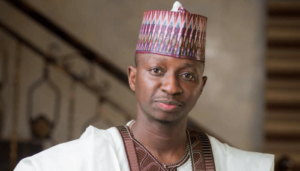
Ibrahim Mohammed Ajia, SPPG Class of 2022, PDP
Ibrahim Mohammed Ajia, an SPPG Class of 2022 Student and House of representative candidate of the Peoples Democratic Party (PDP) Asa/Ilorin West Federal Constituency, has pledged to attract development to his constituency and create opportunities for job employment if elected to serve. According to Ibrahim, "I have acquired that knowledge with modesty and built solid relationships with critical individuals and institutions in Nigeria and beyond. If I am entrusted to represent our Federal Constituency in the House of Representatives, I will be an active, relevant, and performing representative. I will be part of those who will make things happen in the House of Representatives. Our voice will be heard. Our needs will receive attention, our people will get what is due to us, and many of our youth will be gainfully employed."
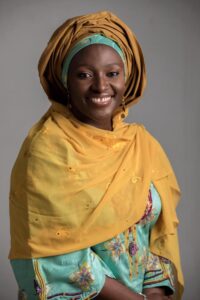
Hajiya Khadijat Abdullahi-Iya SPPG Class of 2022, APGA
Hajiya Khadijat Abdullahi-Iya an SPPG Class of 2022 Student, emerged winner at the governorship primary of the All Progressives Grand Alliance (APGA) in Niger State for the 2023 general election after defeating a male contender, Alhaji Mohammed Usman, with 121 votes against 20. Abdullahi-Iya brazed the odds to change the narrative of the male-dominated political terrain by contesting and clinching the ticket to fly the flag of APGA. According to Abdullahi-Iya, "I was able to leverage my training at the SPPG, the goodwill and relationship my family has built over the years, my social enterprise and existing party structure to win my primaries".

Nonso Nnamani SPPG Class of 2021, APGA
Nonso Nnamani is contesting for a seat at the Federal House of Representatives, Enugu North and South Federal Constituency in the upcoming 2023 general election on the platform of All Progressive Grand Alliance (APGA), his key agenda above power and political interest is to put the needs of the people first and to ensure that policies and programs accurately reflect the needs of his community. According to Nonso Nnamani “Having observed the Enugu North and South political space over the years, I firmly believe that there is need to renew the political class. Leadership is key! It is time to bring in new young leaders with capacity and competence to foster growth and development in our community. My purpose and agenda is clear - PUTTING YOU FIRST.”
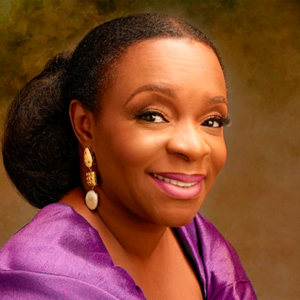
Adeola Azeez, SPPG Pioneer Class Alumni, SDP
Adeola Azeez, the daughter of elder statesman Pa Ayo Adebanjo, an SPPG Pioneer Class Alumna who is running for the House of Representative Ijebu Central under the Social Democratic Party (SDP) Is running to ensure regular electricity supply, creation of jobs, agricultural development and education, among others, in Ijebu Central Federal Constituency. According to Adeola Azeez, "I am not satisfied with the number of women in politics. We don't have enough women in government" She frowned at the rejection of the five gender-based bills by members of the House of Representatives, saying that such action was aimed at denying more women the opportunity to participate in politics. She believes the country cannot move forward as expected until more women are allowed in the three tiers and arms of government.
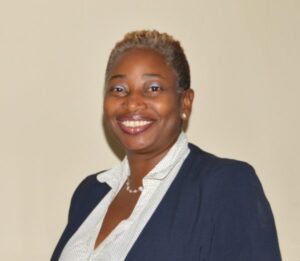
Ier Jonathan-Ichaver SPPG Pioneer Class Alumni, ADC
Ier Jonathan-Ichaver is an SPPG Pioneer Class Alumna, a social justice advocate, and co-founder of Sensor Empowerment Foundation, a disaster relief organisation supporting internally displaced persons (IDPs) and refugees. Ier Jonathan emerged as the Federal House of Representative Kwande/Ushongo candidate for the ADC.
Beyond the Primaries
The SPPG is focused on building ethical, competent leaders and producing at scale a new genre of public leadership that serves the people and delivers on governance. SPPG has set the goal of raising and preparing 10,000 disruptive thinking, values-based political leaders over the next ten years.
The Purpose and Price of Disruptive Change
The Purpose and Price of Disruptive Change
Chukwuma Charles Soludo, CFR
Being the First Graduation Day Keynote Speech at the SPPG Pioneer Class of 2021 (International Conference Centre, Abuja): January 29, 2022
0: PROTOCOL
Dear Friends, let me begin by appreciating one of Africa’s finest amazons and founder of the School of Politics, Policy and Governance (SPPG), my sister Dr. Mrs Obiageli Ezekwesili (Oby) for continuing to be a key change maker in Africa. Graduating the first class of the SPPG today is like planting many seeds in a wide field: some may end up as iroko trees, others as shrubs, but we hope that together, they will all bond into a visible and impactful forest. When I received Oby’s letter some five days ago, I concluded that given my punishing schedule at the moment, I would just come and make a few extempore remarks. But I decided last night to scribble a few talking points— to avoid being misquoted. Therefore, if I appear incoherent, please forgive me.
The Graduation Theme is “Emergence of Unconventionals”. I understand that SPPG was founded to radically and deliberately transform the quality of political and public leadership in Nigeria and Africa, with a view to building a pipeline of value-based and disruptive thinking political class equipped with requisite knowledge and skills to solve complex problems of development in order to reposition Africa in the 21st Century. This is music to my ears and Africa is grateful to Oby.
In 1999, I co-authored a book entitled “Our Continent, Our Future: African Perspectives on Structural Adjustment”. In 2000, I was the long-term consultant in a pan African project that resulted in a book published by the World Bank entitled “Can Africa Claim the 21st Century?” In both books, we identified the centrality of disruptive leadership and a developmental state in Africa’s renaissance. A little over 20 years later, the SPPG has set out to walk the talk by working to deliberately orchestrate the emergence of leaders with knowledge and capabilities.
You can therefore understand why I am personally elated to be speaking at the first graduation ceremony of this cohort of emerging unconventional leaders. Congratulations to you all, and in a few seconds, I will be commiserating with you as well. You volunteered to be in this team, and my charge to you is to go out and make the difference: be the change you have offered to see. Africa is waiting for you. Africa is watching you. Do not let us down.
On leadership, Africa has had a chequered history. While some see only the dark spots, I actually see multi colours of the good, the bad and the ugly. While the bad and the ugly dominate, I always try to avoid what our other sister, Chimamanda Adichie called the “single story” of the African narrative. In some ways, part of our future is in our past. When I read about the plans, values, passion, and accomplishments of some of Africa’s liberation/independence leaders such as Julius Nyerere, Kwame Nkrumah, Nelson Mandela, Patrice Lumumba, Nnamdi Azikiwe, etc I have cause to smile as an African. Back home, I am inspired by the examples of Aminu Kano, M.I. Okpara, Obafemi Awolowo, Sir Ahmadu Bello, etc in our first republic. We can fill up hundreds of pages as eulogy to our gallant and patriotic past heroes and heroines, including those distinguished civil servants, captains of industry, journalists, civil society activists, musicians, etc who worked hard and some even paid the ultimate price to see Nigeria a better place. In our more recent history, especially since 1999, we have seen occasional glitters of hope here and there but despair deepens. Around the continent, there is a mixture of bright and gloomy stories. “Africa Rising” was not just a fluke. The Dark Continent remains potentially the land of opportunities and could indeed be the global economic driver of the 22nd century. But the time to lay the foundation is now. The second scramble for Africa is raging, with the Chinese on the loose. Africa indeed needs new orchestra teams and new songs. It needs to run at the speed of a thousand kilometres an hour to seize back its future and shape its narrative. The graduates of SPPG have onerous and daunting tasks ahead of them. You have my commiserations!
With some 140 multidisciplinary topics covered in the past eight months, what can anyone tell you again in terms of knowledge. You have it, and also know where to find more if needed. With the hoes and machetes, the next is to get into the farm and ensure higher productivity. That farm is the field of politics, policy and governance. I am sure you carefully studied the nature of that farm in Nigeria and Africa, and I wish you good luck as you try to navigate through it to leave the society better than you met it.
But let me suggest, for emphasis, that indeed Africa needs a new liberation movement. The first struggle was liberation from the colonial masters. The second will be liberation from rentier politics and politicians. For me, there is almost a sense of nostalgia, recalling the mission and accomplishments of our founding fathers, especially as we contemplate the world without oil in Nigeria. Much of the existing social order is founded on competition for, and distribution of, rents. Oil and the easy money that came with it destroyed the social fabric and the elite created new institutions and political structures to maximize their gains. As the noose tightened globally on other rentier/criminal enterprises such as drug trafficking or internet scamming, many of the barons flocked into politics as the next easy alternative.
Politics has become big business. Appointment or election into public office is seen largely as an opportunity to “eat” rather than a call to selfless service. There is an army of rich (big men) who have never worked or done any productive work in their life and believe that it is their right to expect something for nothing. The tiny less than one percent elite have a stranglehold on the public purse, sprinkling occasional crumbs to the citizens as ‘dividends of democracy’. The citizens themselves either out of helplessness or acquiescence join the party, expecting the politicians to dole out pittance out of public treasury as charity. The citizens actually clap for such phantom “charity”. Politicians who refuse to do so are deemed as “stingy” or “wicked”, and the circus goes on. With a rentier system, a culture of freebies emerged, and most people don’t expect to pay for anything, including taxes, electricity, water, petrol, etc. A classic feature of the political environment is that corruption has become part of the “culture”, with little incentive for honesty. Honesty is scorned as wickedness, foolishness or mere pretense, and those who dare to be different have a steep price to pay. So, who among you is ready to be honest and scorned by society?
Oil is on its way out, but dismantling the decades-old debilitating institutions and politics around it won’t be a tea party. Nigeria is now at a fiscal cliff with a crunching solvency challenge. Youth unemployment, insecurity, poverty, inflation, etc threaten the social fabric. Migrating to a post oil world of 4th Industrial revolution and sustainable prosperity will require massive disruptive transformations and restoration of a productive social contract.
Such disruptions will come at great costs, and could indeed be dangerous. It is not far to imagine what could befall serious disruptors. In Nigeria, we remember what happened to Murtala Muhammed, and the history books are replete with hundreds of examples of the inherent risks. At a personal level, undertaking the banking revolution in Nigeria came with 19 written threats to me and my family, including physical attacks. Disrupting the existing social order is dangerous. Beneficiaries of the current order are powerful enough to organize and viciously fight back to protect their privileges. On the contrary, the masses who are the ultimate beneficiaries are not organized enough to act as a bulwark against the special interests. As things stand currently, we are standing between the rock and the hard place. With the objective to retain power within the context of short electoral cycles, politicians are afraid to undertake the necessary disruptive changes to guarantee long term safety and prosperity for all. On the other hand, the existing trends are totally unsustainable and the system is living on borrowed times. Everyone is sleepwalking to the hard place, and praying that somehow a miracle will happen along the way.
So, who is ready to put his head on the line to lead such productive but dangerous disruptions? Are the SPPG graduates ready for the assignment? I assume that you can’t wait to get to work, to apply your knowledge for a new Nigeria. Am I right? You have my prayers! As I pray for your success, let me throw up a few random nuggets to chew on your way.
Dear friends, fixing politics requires talent and skills. But these won’t be enough. It won’t happen by lone wolves working in silos. It requires new developmental organizations – organizations/teams of believers, driven by defined ideology, purpose and character. Let’s be clear about one point: Nigeria does not lack well educated/skilled and widely travelled stock of human capital to drive her development. In the U.S alone, Nigeria ranks highest on education among ethnic minorities and as a percentage of its population, it has the most educated population of all ethnic groups. At home, we have over 100 universities churning out hundreds of graduates every year. All over the world, Nigerians excel as champions in their various fields. A key missing link is purpose driven cohesion and organization for transformation of the homeland. There are many disparate groups and organizations, including political parties which claim (at least on their statutes) to champion national development. Only a few, if any, can be identified by any soul in terms of a nationalist ideology, professed and practiced by its members. The liberation struggle for independent Africa was driven by a nationalist ideology to be anchored by a developmental state. There is a huge void today, and I am not sure how we can fix our politics without the requisite organizations for change.
So, my first charge to my new friends and graduates is to profess their purpose in the political farmland and actively participate to actualize it. If you have not yet done so, when you go home today, write down your purpose (what do you want to achieve) in the public arena and paste same beside your reading table or anywhere for everyday reference. Then join a political party, a civil society organization, or organize alternative better platforms of leverage. You may better disrupt from inside than outside. Organization is power. The key is to participate in the process or stop complaining. For Nigeria, most people focus on politics in Abuja and we have for too long tried in vain to fix Nigeria from the obtuse centre. It is time to try fixing it and its politics from below— from the subnational units. If you have something to offer, go and run for office. Win or lose, your participation will add something to the process. Then persevere, endure, and remain focused on delivering your purpose.
For starters, let me suggest that the Alumni of SPPG should form themselves into a New Nigeria Network for change. As SPPG expands, an African network would emerge. Over the next decade, I can see a network of thousands of Africans who share a common template for redeeming our heritage. A Pan African movement may eventually take the stage by storm. The SPPG graduates must literally inculcate and profess a messianic philosophy as the driving force behind their network. It is good to look up to a role model for continuous inspiration or let each SPPG member carry the badge of honour and integrity everywhere. Personally, I would like to hear graduates of SPPG keep reminding the society that “as a graduate of SPPG, there are things I can’t do”, or “as a graduate of SPPG, I always stand up for public interest and not for personal gains” or “I am prepared to pay any price or go to any length to make Africa great”. Just do something different; say something different.
As part of your participation, please deliberately mainstream volunteerism. Don’t waste your new skills or wait until you are in public office. Find or create opportunities to deploy them. Volunteer to teach one hour a week in a local school. You can never imagine the impact. Volunteer in community service: providing information and helping with environmental management, traffic control, public education on lifestyle changes, mentor children and youths, etc. Indeed, volunteer to serve in the village government or clan. Barack Obama failed his first election and went to offer community services, and from there attempted again, and again. Fixing politics requires illustrative personal examples. As Mother Teresa advised, if you can’t change a million lives, start with one. Won’t it be great and a new dawn if on daily basis, each member of the SPPG alumni posts what actions he/she took to be the change he/she desires? Imagine spin-off organizations around Africa with millions of members over time on the same vision and mission. Obviously, something will give!
Dear friends, I won’t end these remarks without reiterating the centrality of purpose in the bid to fix politics. Purpose is everything. If you have not read it, I sincerely recommend the book entitled “The Purpose Driven Life: What on Earth Am I Here For” by Rick Warren. Purpose is deeply personal. Everyone must have that personal deep reflection and answer that question: “what on earth am I here for”? For some, the answer is roundly selfish: to eat, drink, marry, build house(s), and accumulate and accumulate all the vanities of the world and then die. In the circumstance, political arena is nothing but a dining table. I know many people trained in some of the best universities in the world and widely travelled but who complain about being deployed to ministries considered “dry” in public service in comparison to the ones they considered as “juicy”. In this instance, it is not about knowledge and skills but purpose. For others, there must be a divine purpose why God in His infinite wisdom decided to make you an African, a Nigerian, etc. If the divine purpose is interpreted to mean that God sent you here to contribute in leaving His creation better than you met it, then you must be driven by a different meaning and impetus to life.
Every society that has prospered and endured has been led by men and women who have discovered a higher purpose beyond self. For such people, politics is a vocation for selfless service and not a job. Such people are driven by a single purpose— to make a difference and leave legacies. Whenever and wherever competence is augmented with character and developmental ideology, the society wins. I recently re-read Lee Kuan Yew’s book “From Third World to First”, and can’t stop being inspired. The combination of competence and driven by higher purpose produced such a transformational leadership that orchestrated a miracle in development. In one of his last speeches before death, Lee Kuan Yew observed that he and his colleagues were prepared that even if they died trying to make Singapore great, they would have been happy to die for a worthy cause. The choice is personal. The choice is yours.
But if perchance, you choose, as I believe you have elected, to join the crusade for a better Africa, and knowing the missiles that will come your way as you strive to do good and be different, let me encourage you with the great words by President Theodore Roosevelt in 1910: “It is not the critic who counts; not the man who points out how the strong man stumbles, or where the doer of deeds could have done them better. The credit belongs to the man who is actually in the arena, whose face is marred by dust and sweat and blood; who strives valiantly; who errs, who comes short again and again, because there is no effort without error and shortcoming; but who does actually strive to do the deeds; who knows great enthusiasms, the great devotions; who spends himself in a worthy cause; who at the best knows in the end the triumph of high achievement, and who at the worst, if he fails, at least fails while daring greatly, so that his place shall never be with those cold and timid souls who neither know victory nor defeat”.
Dear friends, let me end with this simple prayer for you. May God of Africa grant you the wisdom to discover the divine purpose for your life, the wisdom to know what is right, and very importantly, the courage to do it.
God bless you!
God bless Nigeria!!
Prof. Charles Chukwuma Soludo



